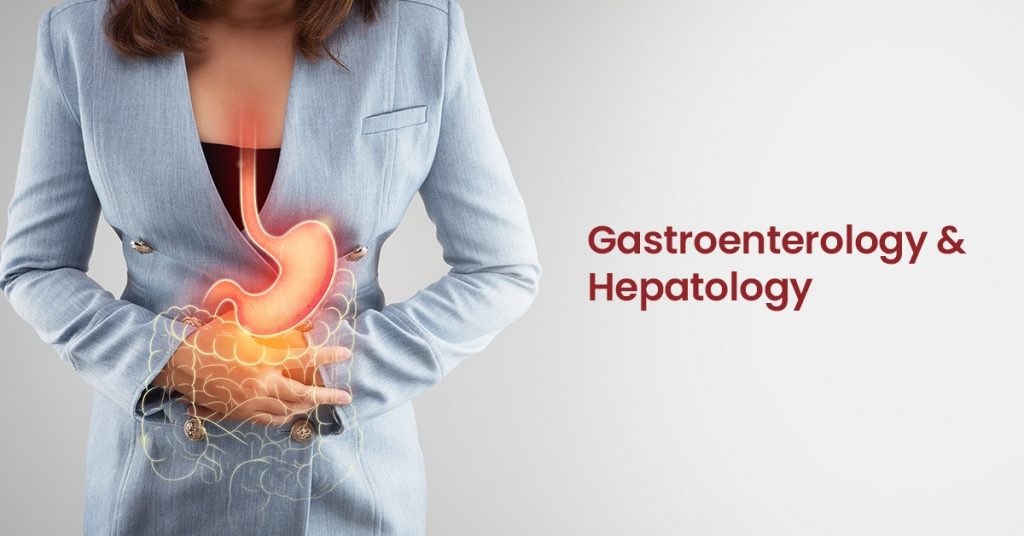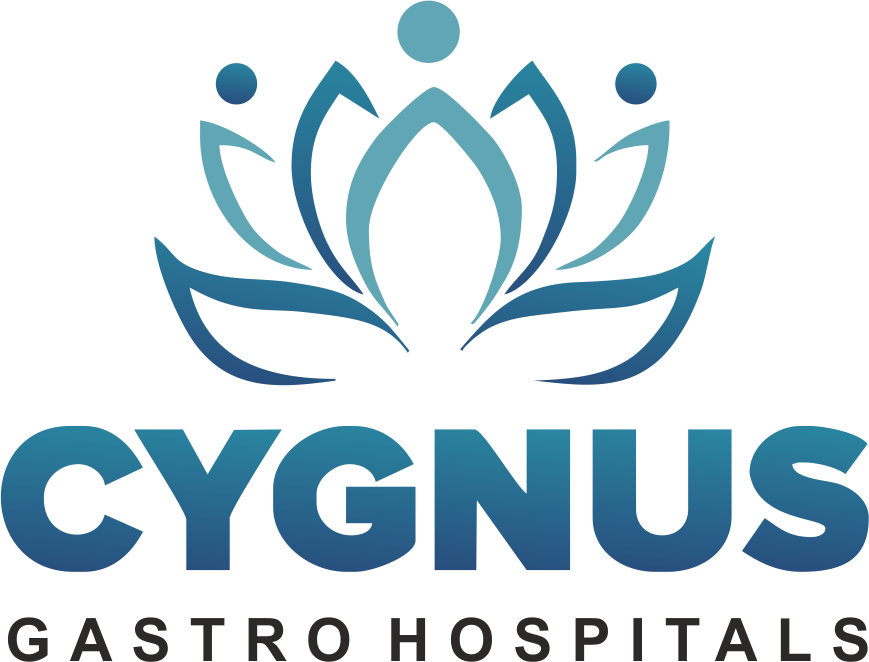
Gastroenterology
Gastroenterology is the branch of medicine that is a study of the normal function and diseases of the esophagus, stomach, small intestine, colon and rectum, pancreas, gallbladder, bile ducts, and liver. Physician practicing in this field are called gastroenterologists. Cygnus hospital is the best gastroenterology hospital in Hyderabad, we serve you with the best Gastroenterologist and Surgical Gastroenterologist in Hyderabad. Among the most common disorders of gastroenterology are Gastroesophageal Reflux Disease (GERD), gastric and duodenal ulcers, malignant tumors, Inflammatory Bowel Diseases, colorectal cancer, and rectal disorders.
Gastroenterology details the understanding of the normal physiology of all organs starting from mouth to anus, as well as motility through the intestines and gastrointestinal tract to maintain healthy digestion, removal of waste, absorption of nutrients, and metabolic processes.
Hepatology, or hepatobiliary medicine, also concurrently studies the liver, pancreas, and biliary tree, and it is traditionally considered a sub-specialty of gastroenterology
When the GIT is infected or inflamed, resulting in any diseases pertaining from mouth to anus, they are called Gastrointestinal Diseases.
Gastrointestinal Diseases:
These are of two types: functional and structural. Examples are nausea/vomiting, food poisoning, lactose intolerance, and diarrhea.
Functional Gastrointestinal Diseases:
In these types of diseases, GIT looks normal upon examination but the movement inside isn’t normal. These comprise the most common problems affecting the GI tract (including the colon and rectum). Constipation, irritable bowel syndrome (IBS), nausea, food poisoning, gas, bloating, GERD, and diarrhea are common examples.
Many factors may be the reason for abnormalities in the GI tract and its motility. These are:
· Eating a fiber-less diet
· Sedentary lifestyle without exercise
· Changing routine and traveling
· Excessive dairy products
· Stress
· Keep postponing the urge to go bowels due to hemorrhoids
· Decreased motility due to weakened bowel movement that is a result of using anti-diarrheal medication for a long time
· Intake of antacids containing calcium or aluminum
· Taking certain medicines such as antidepressants, iron pills, and strong pain medicines such as narcotics
· Pregnancy
A few examples of Functional gastrointestinal diseases are:
Constipation
Constipation, a functional problem, makes it hard for a bowel movement (or pass stools), the stools are not frequent, or incomplete. Constipation is usually caused by insufficient fiber in the diet or a change in the routine or diet.
Constipation causes strain during a bowel movement. It may lead to small, hard stools and sometimes anal problems such as fissures and hemorrhoids. Constipation is rarely a sign of a more serious medical condition.
Treatment:
· Fiber-rich diet
· Regular exercise
· Allowing the bowels to move when there is an urge (resisting the urge causes constipation)
· Apart from these, laxatives may be added if the above methods won’t work.
Irritable bowel syndrome (IBS)
Irritable bowel syndrome (also called spastic colon, irritable colon, IBS, or nervous stomach) is a functional condition where the colon muscle contracts more or less often than “normal.” Certain foods, medicines, and emotional stress are some factors that can trigger Irritable bowel syndrome (IBS).
Symptoms of IBS include:
· Abdominal pain and cramps
· Excess gas
· Bloating
· Change in bowel habits such as harder, looser, or more urgent stools than normal
· Alternating constipation and diarrhea
Treatment includes:
· Avoiding excessive caffeine
· Increasing fiber in your diet
· Monitoring which foods trigger your IBS (and avoiding these foods)
· Minimizing stress or learning different ways to cope with stress
· Take medicines as prescribed by your healthcare provider
· Avoid dehydhydratend hydrating well throughout the day
· Getting high-quality rest/sleep
Structural Gastrointestinal Diseases:
Examination of the bowel looks abnormal on observation. It might be due to many factors and the diseases and illnesses about it are called Structural Gastrointestinal diseases. This structural abnormality sometimes needs to be removed through a surgical process. At Cygnus gastro hospital we have the best Surgical Gastroenterologist in Hyderabad. Common examples of Structural gastrointestinal diseases include strictures, stenosis, hemorrhoids, diverticular disease, colon polyps, colon cancer, and inflammatory bowel disease.
A few examples of Structural Gastrointestinal diseases are:
Hemorrhoids
Hemorrhoids are dilated veins in the anal canal. They’re swollen blood vessels that line the anal opening. They are caused by chronic excess pressure from straining during a bowel movement, diarrhea, or pregnancy. There are 2 types of hemorrhoids: internal and external.
Internal hemorrhoids: Internal hemorrhoids are blood vessels on the inside of the anal opening. When they fall into the anus as a result of straining, they become irritated and start to bleed. Hence, these internal hemorrhoids can fall enough to prolapse (sink or stick) out of the anus.
Treatment includes:
· Improving bowel habits (such as avoiding constipation, not straining during bowel movements, and moving your bowels when you have the urge)
· Removing them surgically
External hemorrhoids: External hemorrhoids are veins that lie just under the skin on the outside of the anus. After straining often, the external hemorrhoidal veins burst, and blood clots form under the skin. This painful condition is called as “pile.”
Treatment include removing the clot and vein under local anesthesia and or removing hemorrhoids.
Perianal abscesses
Perianal abscesses, also a structural disease, can occur when the tiny anal glands that open on the inside of the anus are blocked, and the bacteria in these glands causes an infection. When pus develops, an abscess forms. Treatment include draining the abscess, usually under local anesthesia.


